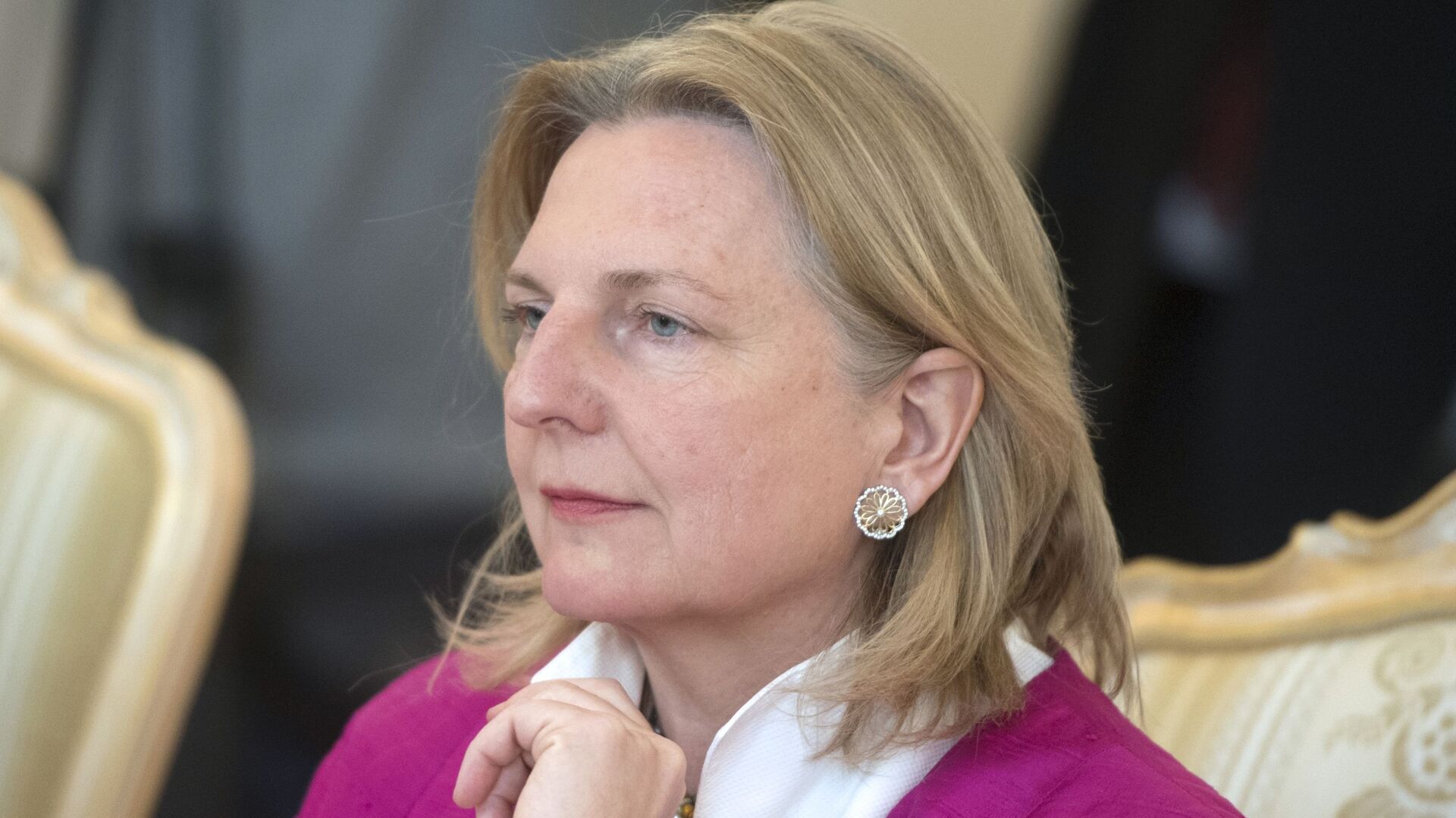EU Would Likely Have Imposed Anti-Russian Sanctions Without US Prompt - Kneissl
18:41 GMT 17.06.2023 (Updated: 19:56 GMT 17.06.2023)

© Sputnik / Maxim Blinov
/ Subscribe
Exclusive
While the US may enjoy considerable influence over the EU, one should not disregard the "tremendous power" the European Commission wields within the union, says former Austrian Foreign Minister Karin Kneissl.
Since the escalation of the Ukrainian conflict in February 2022, the European Union has appeared to be largely content to follow the United States’ lead, eagerly supplying funds and weapons to the regime in Kiev while simultaneously unleashing a barrage of economic sanctions against Russia.
Yet while the United States has enjoyed considerable influence in Western Europe practically since the end of World War II, which then extended to Eastern Europe after the fall of the Soviet Union, Austria's former foreign minister, Karin Kneissl, argued that this influence should not be overestimated.
Speaking to Sputnik at the St. Petersburg International Economic Forum, Kneissl pointed out that the European Commission, the executive branch of the European Union, wields "tremendous power" in the EU, while motions to impose economic sanctions on Russia had existed in the European Parliament before February 2022.
When asked whether European leaders would've imposed sanctions against Russia even if the White House did not ask them to, Kneissl replied: "Definitely!"
Regarding the role of the European Commission in the EU, Kneissl explained that decisions in the European Union regarding foreign and defense policies are reached through consensus.
"It's all about consensus. So you need some sort of agreement. And this agreement mostly is achieved by papers that the commission prepares. So to say, it's the accomplished fact if you want," she elaborated. "And this I want to point out, because the commission has an increasing power and this is linked to bureaucracy. Therefore, it's less about a certain country’s interest. It's really about the mindset that is within the commission."
Kneissl added that "this commission has changed over the years" and that while it does speak to European powerhouses such as Berlin or Paris, "other, much smaller, capitals are not really part of the decision-making."
The former foreign minister also noted how one of the EU's member-states, Poland, gained quite a bit of clout in the union in recent years, with the country having "become increasingly a regional power because of its very outspoken stance on Ukraine."
"It's not only embedded in the transatlantic vision of making Ukraine a NATO member and increasing the radius of Poland, as well as a sort of center and not anymore being on the periphery, because that also puts Poland much more in the center of line when you look at it from purely a geographic vantage point,” she said. "And there are now already lots of papers in various think tanks that claim that Poland could become the new center of the European Union. And it has already said it wants to become the number two or number one, even among the NATO army."
Keissl argued that a "very strong transatlantic spirit" permeates "all Polish circles", which likely stems from "the role Polish families played in the 1776 revolution of the United States," and that with the ongoing conflict in Ukraine and the “tremendous, very aggressive and expansionist political talk that you have in Poland” today, Warsaw’s ambitions seem rather "high."
"I cannot tell you whether these ambitions will work or whether Poland, as many times in history will have a more kind of accidental final," she mused.

